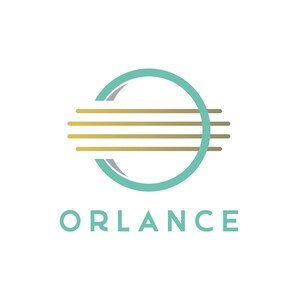SEATTLE, Nov. 28, 2023 /PRNewswire/ -- Orlance, Inc., a Seattle biotech developing next-generation DNA and RNA vaccines and therapeutics, has been awarded a three-year $3M National Institutes of Health (NIH) Phase II Small Business Innovation Research (SBIR) grant to advance its needle-free MACH-1 delivery platform and a universal influenza vaccine designed to protect from the annual flu and future pandemics toward Phase 1 clinical trials.
The MACH-1 platform is a high-performance microparticle 'gene gun' technology that efficiently and uniquely delivers DNA or RNA vaccine-coated microparticles directly into cells in the epidermis, the uppermost layer of the skin. The epidermis is rich in immune stimulating cells. MACH-1 delivery harnesses this environment and the natural machinery of its immune cells to deliver DNA and RNA vaccines encoding proteins that trigger potent immunity including antibodies to block an infection and T cells that can eliminate infected cells. Unlike currently licensed mRNA vaccines, MACH-1-delivered vaccines are stable at room temperature, are painless and needle-free, and can trigger protective levels of immunity with much lower doses.
Orlance's universal influenza vaccine is designed to stimulate broad immunity against all circulating human strains of influenza as well as bird and swine strains that pose a threat for future pandemics. Current flu vaccines require educated guesses about which strains will circulate each year, but these predictions are not always accurate and can result in a poor match between the vaccine and circulating strains. If a new and unexpected pandemic flu strain emerges, current flu vaccines cannot be manufactured fast enough to prevent world-wide spread. Orlance's universal influenza vaccine can be manufactured quickly and would not need to be updated each year. Under previous SBIR funding, Orlance found that MACH-1 delivery of its universal influenza DNA vaccine in preclinical models induced broadly-specific antibody and T cell responses resulting in protection from a wide range of different influenza viruses. These studies also showed that MACH-1 vaccines can induce potent mucosal immune responses in the respiratory tract that can shut down the virus at the initial site of exposure.
"We are very excited about what Orlance MACH-1 vaccines are positioned to offer the healthcare industry and overall health landscape," stated Kristyn Aalto, Orlance CEO. "MACH-1 vaccines could fill the gaps that still exist with current mRNA vaccines by offering needle-free and painless delivery, durable efficacy at lower doses, stability at room temperature to support cold-chain independent distribution, and induction of mucosal immunity to maximize protection from respiratory infections." This new SBIR grant, led by Orlance's Dr. Hannah Frizzell, PhD, will enable Orlance to complete formulation, design, and preclinical validation activities necessary to advance its MACH-1 universal influenza vaccine to phase I clinical trial readiness. If successful, this program will result in a vaccine that could reduce the burden of flu worldwide, offer a defense against future flu pandemics, and provide a plug-and-play clinical MACH-1 platform ready for partnering opportunities for other vaccine and therapeutic indications.
This award brings Orlance's SBIR funding total to $12.5M to advance next generation DNA and RNA vaccines and therapeutics. Orlance was founded as a University of Washington spinout company in 2016 to develop the MACH-1 platform based on technology invented by Deborah Fuller, PhD, Professor of Microbiology at the University of Washington School of Medicine. Orlance plans to initiate Phase 1 clinical trials in 2025.
SOURCE Orlance

WANT YOUR COMPANY'S NEWS FEATURED ON PRNEWSWIRE.COM?
Newsrooms &
Influencers
Digital Media
Outlets
Journalists
Opted In





Share this article